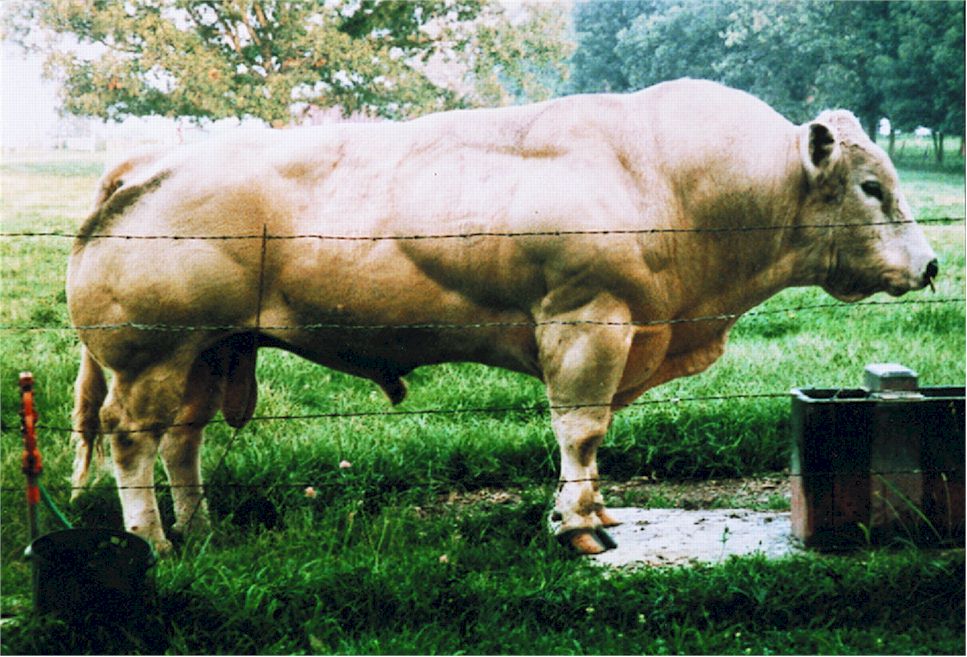No products in the cart.
A UNIQUE MUTATION
MYOSTATIN GENE

The Myostatin (MH) gene is a recessive gene found in all mammals, that influences the production of a protein that controls muscle development. In cattle, natural mutations cause a deletion of the myostatin, so the muscles keep growing, resulting in the double-muscled phenotype.
The carcases of double-muscled cattle have significantly higher kill out percentages, due to the higher muscle mass, but also lower fat and bone mass, and even smaller internal organs. This can be beneficial, as in the case of non-disruptive variants of the myostatin gene. However, there are disruptive variants that have the potential for increased calving difficulty, because of higher birth weights, and reduced calving ability.
Non-Disruptive Variants – These variants have been found to increase the size of the muscle, but with no associated increase in calving difficulty, or lower fertility or longevity. The Variants in this category are: F94L (which is common in Aubracs, and very common in the Limousin breed), S105C, and D182N.
Disruptive Variants – These variants are heavily muscled, and often known as “culards”. Variant NT821 is most common in the Belgian Blue, and Partenaise breeds. Variant Q204X is most common in the Charolais breed. In France.
Aubracs with two copies of either of these genes cannot be registered. Neither can any of their descendants! Other variants in this category are: C313Y, E226X, E291X, NT419. The issues in these variants can include lower fertility, milkability, and shorter longevity. It must also be noted that heavily muscled cattle often require greater levels of concentrates to finish.
Cattle with one copy of the gene may not show any noticeable effects. But, if a cow with one copy is mated to a bull with one copy, the resulting progeny could have two copies of the gene. This calf could exhibit the full extremes of the gene!
Aubrac cattle are hardy, easy calving, with the ability to perform on low cost forage, and good longevity. It is vital that Irish Aubracs retain these attributes. The Disruptive Variants of the Myostatin gene must not be part of the breed. Wetherbys test for the Myostatin gene, and the Society plan to start a testing programme in 2021.

